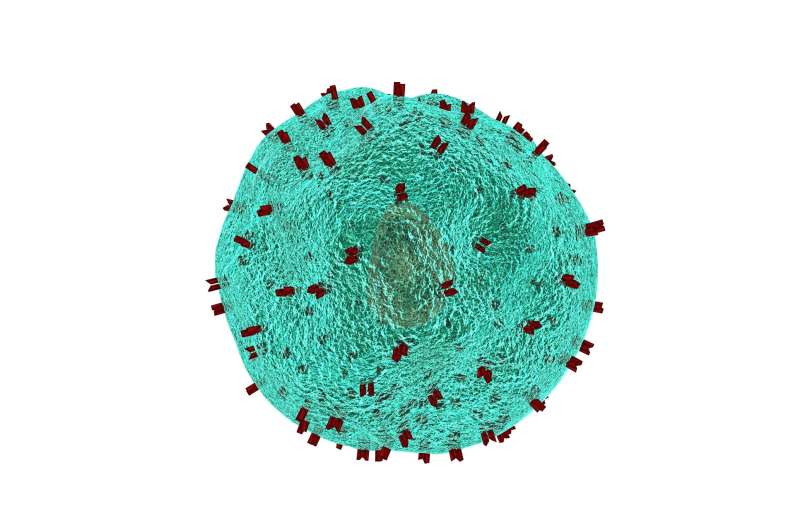Higher doses of CAR-T therapy bring survival advantage for young patients with hard-to-treat B-ALL

Young people who received doses of tisagenlecleucel, a chimeric antigen receptor T cell (CAR-T) therapy, at the higher end of the FDA-approved dosing range had significantly better survival rates at one year compared with those who received lower doses within this range, according to research published today in Blood Advances.
Since its approval as the first gene therapy available in the United States in 2017, tisagenlecleucel has offered a welcome treatment option for pediatric patients with B-cell acute lymphoblastic leukemia (B-ALL) whose cancer does not respond to chemotherapy or recurs after prior response. However, the wide dosing range approved for the therapy can pose a conundrum for doctors who sometimes must choose whether to use a higher or lower dose with little evidence to guide these decisions. This new study offers the first insights into optimal dosing based on real-world data.
"In the past, we did not have data to guide clinical decisions around commercial CAR T-cell dosing and didn't know if higher doses would affect toxicity and compromise outcomes, or support enhanced anti-leukemia effect," said Liora Schultz, MD, pediatric oncologist at the Stanford Children's Health | Lucile Packard Children's Hospital, and the study's lead author. "This data has direct clinical applicability, as it supports use of higher dosing, as available, within the approved tisagenlecleucel dose range."
ALL is the most common type of cancer in children, and B-ALL is its most common subtype. It is often treatable with chemotherapy, but about 20% of patients—one out of five—either do not respond to chemotherapy or subsequently relapse. CAR T-cell therapy is a type of immunotherapy in which a patient's T cells, immune cells in the body that fight infection, are removed, genetically modified in a laboratory to help them identify cancer cells, and then infused back into the patient's bloodstream where they find and destroy cancer cells. This therapy is becoming an integral part of standard care as an alternative or supplement to stem cell transplantation for pediatric patients with relapsed or refractory B-ALL.
Tisagenlecleucel is approved at a dosing range of 0.2 to 5 million CAR T cells/kg for patients weighing 50 kilograms or less, or 10 to 250 million CAR T cells for patients over 50 kilograms. In practice, the number of CAR T cells that are manufactured for each patient varies substantially based on the number of T cells that are obtained initially and the rate at which the modified cells grow in the laboratory.
Any amount of CAR T cells within the approved range is considered an acceptable dose, but if more than the minimum number of cells are available within the approved range, doctors can decide whether to use a higher amount or a lower amount. Clinical trials for tisagenlecleucel provided guidance on dosing leading to the therapy's approval, but real-world data is useful to fine-tune dosing and inform decision making when there are multiple options available.
For the study, researchers analyzed rates of overall survival, event-free survival, and relapse-free survival at one year among 185 patients aged 26 or younger who received tisagenlecleucel for relapsed or refractory B-ALL. They found that patients who received a dose at the higher end of the approved range (between 2.4 and 5.1 million cells/kg) had significantly higher survival rates according to all three measures compared with patients who received a dose at the lower end (between zero and 1.3 million cells/kg). In the highest dose group, 86% of patients were alive at one year, compared to 59% in the lowest dose group. Researchers did not observe any signs of increased toxicity or safety concerns with higher doses.
The findings suggest that administering doses of tisagenlecleucel at the higher end of the approved range could help to achieve a more effective and long-term response without raising the toxicity risk. "A lot of effort is focused on complex engineering and development of next-generation CAR-T therapies," said Dr. Schultz. "This study aims to explore if clinical manipulations using our current approved construct, tisagenlecleucel, can achieve even incremental advances in the field."
More information: Heather Stefanski et al, Higher doses of tisagenlecleucel associate with improved outcomes: a report from the pediatric real-world CAR consortium, Blood Advances (2022). DOI: 10.1182/bloodadvances.2022007246



















